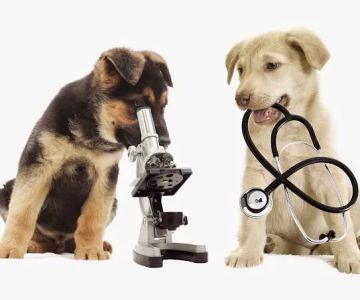What is Veterinary Medicine and How It Helps Your Pets
- 1. What is Veterinary Medicine?
- 2. The Importance of Veterinary Care for Your Pets
- 3. Common Treatments in Veterinary Medicine
- 4. The Role of Veterinary Professionals in Animal Health
- 5. How Veterinary Medicine Can Prevent Illnesses
1. What is Veterinary Medicine?
When we talk about veterinary medicine, we’re referring to the branch of medicine that deals with the diagnosis, treatment, and prevention of diseases and injuries in animals. This field extends to all types of animals, from household pets like cats and dogs to farm animals and even wildlife. Veterinary medicine plays a crucial role in ensuring that animals are healthy, thriving, and free from pain. Whether it’s a routine check-up or a specialized surgical procedure, veterinary professionals are dedicated to maintaining animal health.
2. The Importance of Veterinary Care for Your Pets
When it comes to caring for your pets, regular visits to a veterinary clinic are essential. Veterinary care is not just about treating animals when they’re sick; it’s about ensuring their overall well-being and preventing potential health issues. For example, routine vaccinations, parasite control, and dental care are all part of proactive veterinary practices. A well-cared-for pet is not only healthier but also more likely to live a longer, happier life. This is why regular check-ups with a veterinary professional are essential, as they can spot early signs of health problems that might go unnoticed at home.
Veterinary care can also help you make informed decisions about your pet’s lifestyle and nutrition, ensuring they are living their best life possible. A skilled veterinarian can guide you through these aspects, offering valuable advice that can keep your pet fit and healthy for years to come.

19911 Father Hurley Blvd, Germantown, MD 20874, USA
See Details3. Common Treatments in Veterinary Medicine
Veterinary treatments are as diverse as the animals they serve. Some of the most common treatments include:
- Vaccinations: Preventative vaccines help protect animals from dangerous diseases like rabies, parvovirus, and distemper.
- Surgery: Veterinary surgeons perform various procedures, from routine spaying and neutering to more complex surgeries like tumor removals.
- Diagnostic Testing: Blood tests, X-rays, and ultrasound imaging are just a few tools veterinarians use to diagnose conditions in animals.
- Parasite Control: Fleas, ticks, and worms are common parasites that can harm animals. Veterinary care often includes treatments to eliminate or prevent these invaders.
- Dental Care: Many pets suffer from dental issues that can lead to more serious health problems if not addressed. Veterinary dentistry ensures your pet’s teeth and gums are in good condition.
These are just a few examples, and the field of veterinary medicine continues to advance with new treatments and techniques that improve animal health and welfare.
4. The Role of Veterinary Professionals in Animal Health
Veterinary professionals, including veterinarians, veterinary technicians, and support staff, play a crucial role in animal healthcare. Veterinarians are highly trained doctors who diagnose, treat, and prevent diseases in animals. They also perform surgeries, prescribe medications, and provide advice to pet owners.
Veterinary technicians assist with diagnostic tests, administer medications, and monitor animals during surgery or recovery. Their expertise is crucial in supporting veterinarians and ensuring that the practice runs smoothly. Together, veterinary teams provide compassionate care for animals, making sure they receive the best possible treatment.
5. How Veterinary Medicine Can Prevent Illnesses
One of the most significant benefits of veterinary medicine is its ability to prevent illnesses before they even occur. Through preventative care, such as vaccinations, parasite control, and regular health screenings, veterinary professionals can help your pets avoid many common health issues.
Early detection is another critical component of preventative care. Regular visits to the vet allow for the identification of any potential health issues before they become serious. For instance, conditions like heart disease, diabetes, and cancer can be managed more effectively when caught early. Preventative care can save your pet from unnecessary pain and suffering while also saving you from expensive treatments down the line.
Veterinary professionals often recommend specific care routines based on your pet’s breed, age, and lifestyle to ensure that your animal lives a long, healthy life. By following their advice, you can be proactive in protecting your pet from the most common and preventable health issues.
If you’re looking to learn more about veterinary medicine and how it can help your pet, consider seeking out a trusted veterinary practice in your area. Whether your pet is in need of a routine check-up or specialized treatment, a skilled veterinary team will ensure that your animal’s health is in good hands.
<>SEO Title: Understanding What Veterinary Medicine Is and How It Impacts Animal Health
SEO Keywords: veterinary medicine, veterinary care, pet healthcare, animal medicine, veterinary professionals, animal health, veterinary treatments
SEO Description: Explore the world of veterinary medicine, its importance in animal health, and how it helps pets lead healthier, happier lives. Learn more about veterinary treatments and practices.










